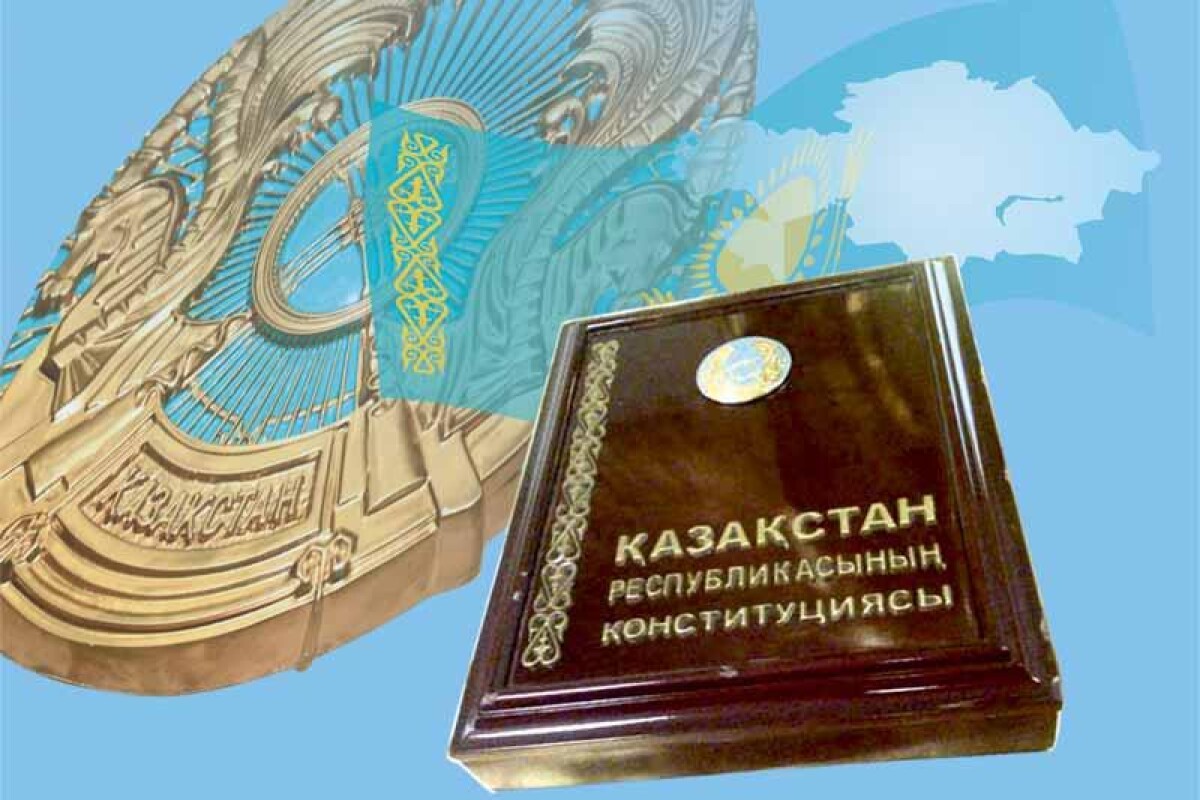
The Constitution of the Republic of Kazakhstan is the basic law of Kazakhstan. The current Constitution of the Republic of Kazakhstan was adopted in a nationwide referendum on August 30, 1995. This day is a state holiday - the Day of the Constitution of the Republic of Kazakhstan. Adoption of the basic law of the country was preceded by a broad discussion of the draft Constitution by the population of the country.
The first article of the Constitution of the Republic of Kazakhstan establishes the country as a democratic, secular, legal and social state, the highest values of which are the person, his life, rights and freedoms. According to the President of Kazakhstan Nursultan Nazarbayev, the Constitution of Kazakhstan is the foundation of freedom. So, the Constitution gave the people in Kazakhstan the most important thing - the right to choose.
In accordance with the amendments made to the Basic Law on May 18, 2007 at a joint session of the Chambers of the Parliament, Kazakhstan is a unitary state with a presidential-parliamentary form of government in form of state structure.
On the same day, 10 years ago, at the proposal of the President of Kazakhstan, an article was included in the text of the Constitution of the Republic of Kazakhstan on the capital of the state - Astana.
Astana is the capital of the Republic of Kazakhstan, a symbol of state unity, the quintessence of strategic plans and aspirations of an independent state, the most important national project to create an ultramodern metropolis of the 21st century. Strategic thinking of the President of the Republic of Kazakhstan N.A. Nazarbayev defined a long-term perspective for the country's development, the transfer of the capital was the beginning of a new global epoch in the history of an independent state.
The modern city is spread on the banks of Esil River, surprises with its rapid take-off, fantastic projects, the shining lights of avenues. Already in 1999, Astana achieved world recognition. The new capital of independent Kazakhstan was awarded the UNESCO World City award. This title is assigned to the new cities of the planet that managed to achieve impressive achievements in a short period of time in socio-economic, political and cultural development and realized the goals of strengthening inter-ethnic and inter-confessional cooperation. On July 16, 1999, in the capital of Bolivia, La Paz, the Secretary-General of UNESCO, Federico Mayor, awarded Astana a medal and a certificate of the winner of the International Cities for Peace Contest. Since that time Astana has been awarded the title of "City of Peace".
At the present stage, Astana is the focus of all processes taking place in modern Kazakhstan, forming a unique image of the city, which is able to implement the strategic tasks facing our state in the 21st century.
We recall that, during the time that has passed since the adoption of the current Constitution, amendments and additions to it were made three times: in 1998, 2007 and 2011. In 1998, amendments and additions were made to 19 articles of the basic law. The changes affected the terms and powers of the president, deputies of the Senate and Majilis, the upper age limit for the civil servant was removed earlier. In addition, the 1998 amendments stipulated that 10 Majilis deputies are elected on the basis of party lists according to the proportional representation system.
More substantial amendments to the Constitution were adopted in 2007. In aggregate, their essence was as follows: transition to a proportional electoral system; strengthening the status of parliament through the introduction of a rule on the approval of the prime minister by a parliamentary majority and the procedure for consultations between the president and party factions when appointing the head of government; the Assembly of People of Kazakhstan was endowed with a constitutional status and was given the right to delegate its representatives to the Majilis and Senate of the Parliament in accordance with the established quota.
In February 2011, the Constitution was amended to establish the constitutional framework for the appointment and conduct of early presidential elections.
In March 2017, the Constitution was again amended to allow for the establishment of a special legal regime in the financial sphere within Astana, the grounds for the deprivation of citizenship by court decision for the commission of terrorist crimes, as well as for causing other grave harm to the vital interests of the Republic of Kazakhstan, to the President of the Republic of Kazakhstan, namely the availability of higher education and others.
Translated by Raushan MAKHMETZHANOVA
